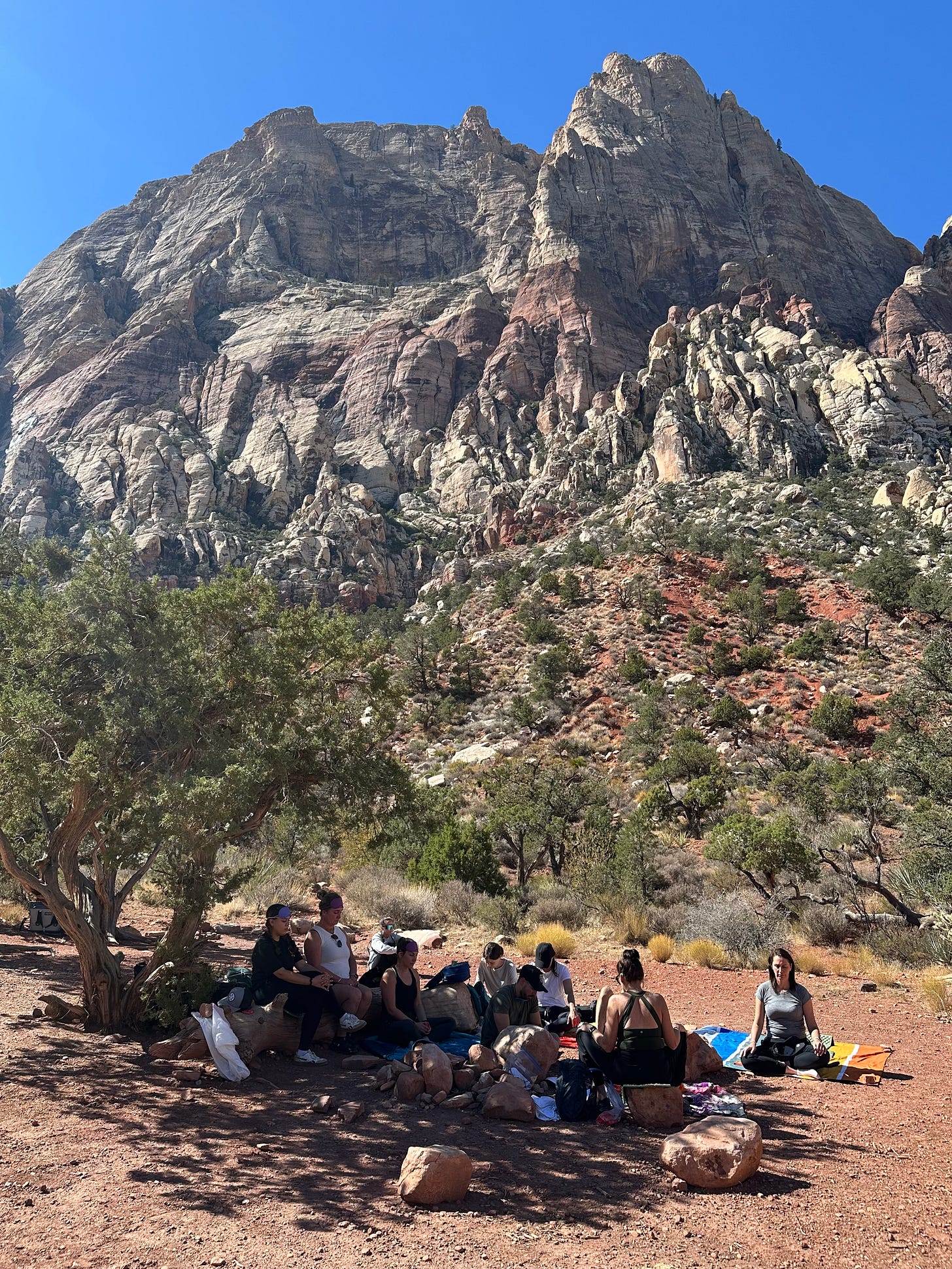Embodied Affection
The Gentle Art of Tender Attention
When my youngest daughter was about eight years old, she used to place her hands on her slightly rounded belly and say, “I love my belly.” I used to marvel at this innocent expression of appreciation for her body exactly as it was.
At the time, I recoiled at my own slightly rounded belly, desiring instead the sleek, flat, preferably ripped abs on the covers of grocery store magazines.
Now, in my sixties, I appreciate that having such light-hearted affection for our bodies is critical to well-being. For many of us, our bodies are among the places we most openly criticize — shaming ourselves for not looking a certain way.
Journey to Self-Affection
What to do? We can begin by offering all parts of our body some attention. Our bodies are conduits to presence — literally our vehicle for experiencing it. When we spend too much attention hating them, we can shut out the simple vitality of presence itself.
Embodied Affection Meditation
Last week, I led a hiking group in a meditation I called Embodied Affection — a body scan I sometimes describe as “kissing yourself all over.” We closed our eyes and let awareness travel from head to toe, not to fix or judge, but to touch with attention.
It was remarkable to feel the shift. When we bring attention out of the brain and back into the body, something lights up — a quiet hum of presence.
So often, we think of meditation as the art of getting rid of thoughts — as though stillness means a blank mind. But really, meditation is the art of directing attention. It’s a kind of gentle mastery, a way of choosing where to place our awareness — not to control experience, but to deepen intimacy with it.
Barriers to Body Awareness
Afterward, one participant came up to me and said she had a hard time being aware of her body at all. It felt almost impossible for her to move her attention from one body part to another. I suggested starting small — with one hand. “Maybe shake it a little,” I said, “and then notice the feeling afterward.”
She tried it and said she still didn’t feel anything, but mentioned that her knuckles needed to be cracked.
“How do you know?” I asked.
“I feel pain,” she said.
We talked about how pain and pleasure are both embodied experiences that capture our attention — and how, while she was telling herself the story that she couldn’t move her attention and wasn’t aware of her body, in fact, she already was.
The Power of a Softer Word
There’s something liberating about the word affection. It’s lighter than love, yet every bit as sacred.
Affection carries warmth, tolerance, playfulness — the kind of gaze a grandparent gives a child. Bemused. Forgiving. Entirely unthreatened by imperfection.
One of the older meanings of affection is “the feeling aspect of consciousness.” Isn’t that beautiful? It suggests that affection isn’t something we manufacture — it’s what consciousness naturally feels like when it’s unguarded.
Self-Affection vs. Self-Care
Self-affection differs from self-care or self-love. Where self-care can be practical and self-love aspirational, self-affection is relational. It’s a way of being in loving contact with ourselves, right here, in this very body — the one that breathes, aches, digests, dreams, and carries us through every moment.
When we embody affection, we soften the inner critic. Instead of trying to reform our self-image, we befriend it. This shift alone can regulate the nervous system — not through control, but through kindness.
Juicy Practice: Kissing Yourself All Over
Try a five-minute Embodied Affection meditation.
Find a quiet place. Close your eyes.
Let awareness move through your body as if your attention were a gentle, curious, and kind set of lips.
Pause wherever there’s tension, ache, or numbness.
No fixing. Just affection.
If it helps, imagine you are your own grandparent — patient, forgiving, delighted to be with you.
As you move from head to toe, notice if some forgotten part of you begins to glow a little. That’s the power of attention. That’s affection embodied.
Closing Reflection
I love this attitude expressed in a quote often ascribed to Rumi:
“Your task is not to seek for love, but merely to seek and find all the barriers within yourself that you have built against it.”
Affection melts those barriers not through striving, but through presence. It’s love made humble, embodied, and real.
And if you’ve practiced Affectionate Witnessing with me before — that warm awareness through reflective listening we can bring to our thoughts and stories — Embodied Affection is its companion in the body. One softens the mind, the other opens the flesh of being.
Good News and Upcoming Events
My essay “Can We Talk About Aging Shame?” will be published by Spirituality & Health Magazine on November 12, 2025. In the meantime, check out this previous article I wrote for them called, Practice the Art of Affectionate Witnessing (a sister practice to the one talked about here!)
The professional review of Naked in the Now from Chantireviews is here!
Workshop this Saturday! October 11, 2025, at 2:30 pm via Zoom. I’ll be teaching Naked Writing: The Art of Vulnerable Expression for the International Memoir Writers Association. If you’ve ever longed to write from your most authentic self, I’d love to see you there.
Write Now Mind – a new session might start in November instead of December! Email me if interested.
Write by Red Rock – In-person writing practice at the Blue Diamond Library. Next session is December 3, 2025, 12:30 pm
Write by the Sea – Zoom writing and Awareness Practice Mondays at 1 pm Pacific. By invitation, but do ask me if you are interested.



I love doing this in the shower. Really paying attention to how it feels to bathe myself.